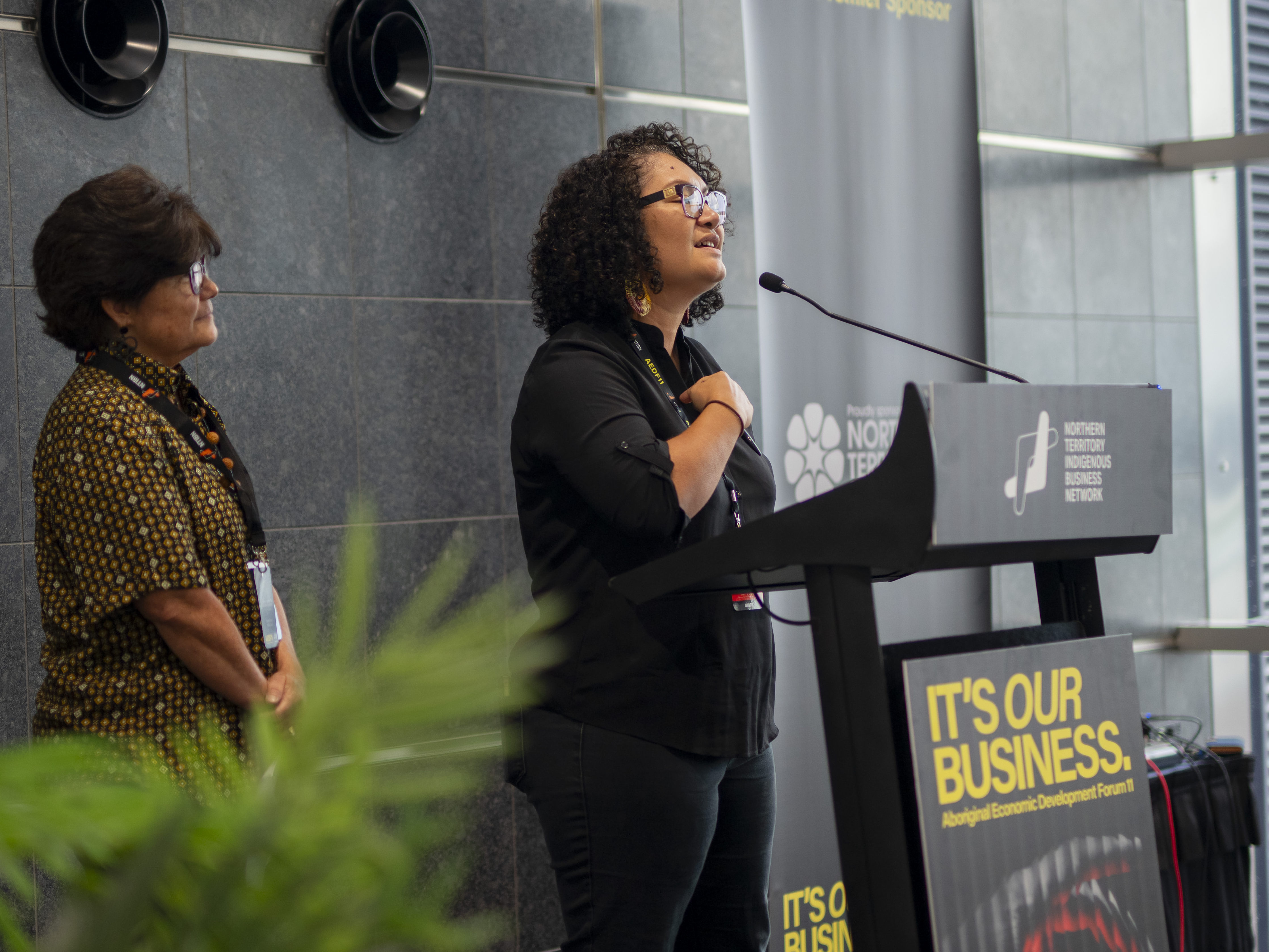Indigenous leaders and business figures have raised serious concerns over the revelation an audit of federal contracts found Indigenous employment rules were dropped in two thirds of cases, translating to $70 billion worth of contracts not being required to meet the minimum number of Indigenous staff hired or use Indigenous businesses.
First reported by the ABC, the Australian National Audit Office found almost 70 per cent of recorded contracts since 2016, or about 1,475 contracts, were exempted from requirements for at least three per cent of the workforce to be Indigenous, or that amount of components sourced from Indigenous-owned businesses.
Auditors said contract exemptions were increasing, and while some were legitimate exemptions, others were given with little explanation. Of those contracts that were exempted from Indigenous participation rules, one third listed their reason for exemption under the category "other".
"The inappropriate use of exemptions impedes achievement of the Indigenous Procurement Policy's objectives… Systems have been set up to allow potentially invalid exemptions," the auditors said.
Mandatory Minimum Indigenous Participation Requirements apply to contracts with an initial value over $7.5 million in 19 Industry categories.
The requirements do not apply to: contracts subject to Commonwealth Procurement Rules which deal with activities relating to international peace and security, human health, essential security interests, and national treasures; several sub-industry category exclusions like building leases where there is little to no employment or supply chain involvement; contracts that are part of an approach to market that was established prior to the MMR industry category being subject to MMR; and contracts delivered overseas in whole or in part.
Northern Territory Indigenous Business Network chief executive Naomi Anstess told National Indigenous Times the findings of the Audit Office investigation were "concerning and highlight a critical gap between the intent of the Indigenous Procurement Policy and its implementation in practice".
"When almost 70 per cent of contracts are exempted and compliance checks are rare, it raises real questions about accountability and the integrity of the system," she said.
The auditors found that of those contracts that were subject to Indigenous participation rules, only one in five was assessed for compliance, and 28 per cent of those assessed were found to be in breach of the requirements.
"The Indigenous Procurement Policy was designed to drive genuine economic participation for First Nations peoples - a key commitment under the Closing the Gap framework. These aren't just contractual targets, they're mechanisms for transformational change. But that change can't happen without transparent processes and governments willing to hold themselves to account," Ms Anstess said.
"Our certified members collectively turn over $3 billion each year and employ more than 2,700 Aboriginal people. These businesses are investment-ready, scalable, and proven, yet they continue to be overlooked when exemptions are applied without scrutiny or justification.
"We understand that policy implementation is complex. That's why NTIBN and other jurisdictional Chambers are committed to partnering with government to improve policy design, support compliance mechanisms, and co-develop solutions. This aligns directly with Priority Reform One of the National Agreement on Closing the Gap: formal partnerships and shared decision-making.
"To transform outcomes, we must also transform how government does business - with transparency, with integrity, and with the willingness to be accountable for results."

Federal Opposition spokesperson for Indigenous policy, Senator Kerrynne Liddle, told National Indigenous Times the federal government "must explain why they have not applied or enforced mandatory minimum requirements under the Indigenous Procurement Policy for government contracts".
"With business devastated by the state of Australia's economy this is no time to be giving exemptions to this policy without sufficient cause, explanation or justification," the Arrernte senator for South Australia said.
"For transparency it is also important for the NIAA to reveal the impact of any exemption. According to the Australian National Audit Office, only one in five contracts is monitored for compliance and of those only a quarter are compliant. It is simply not good enough."
Senator Lidia Thorpe told National Indigenous Times the audit findings are "a disgrace".
"It appears the government's own rules to boost First Peoples' employment are being ignored — or quietly waived behind closed doors without explanation," she said.
The Gunnai, Gunditjmara and Djab Wurrung woman, who represents Victoria in the Senate as an independent, said when two-thirds of contracts are exempt, and "barely any of the rest are checked for compliance, it tells you the policy is designed to allow business as usual".
"It needs to be reviewed and strengthened. And the federal government must explain who approved these exemptions, what the criteria were, and why billions in public money is flowing with no accountability," she said.
"We keep hearing that funding is going to First Peoples — but whether it's these contracts or money flowing through the NIAA, we see massive problems with misallocation. We must ensure these procurement rules are strengthened and are administered transparently, and we need to ensure that money going out the door for First Peoples is going to community-controlled organisations, not big corporations."

A federal government spokesperson told National Indigenous Times the Indigenous Procurement Policy is "an important part of First Nations economic empowerment, awarding over 80,000 contracts, with a total value of over $11.4 billion - up from the $10 billion announced in October".
"This year, the… government announced reforms to the IPP to strengthen its eligibility criteria, increase its ambition and drive better outcomes for First Nations businesses.
"In implementing recommendations from the recent ANAO report and in conjunction with announced IPP reforms, the National Indigenous Australians Agency (NIAA) is working to develop stronger processes for Government agencies and Indigenous businesses looking to tender for procurement contracts."
National Indigenous Times understands that the four fifths of contracts that are yet to be assessed, in the period from 2016, have not been finalised – and as such have not met the conditions for assessment.
The NIAA has agreed to implement in full six recommendations and the majority of one other recommendation made by the Australian National Audit Office.
It is understood that as these recommendations are implemented over the coming months, the NIAA will look to further strengthen its administration of the IPP by updating existing guidance, conducting additional training, and exploring information and communications technology enhancements.
